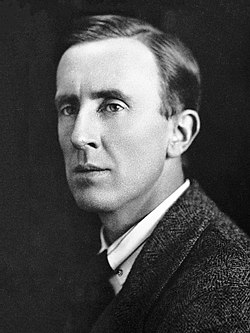J.R.R. Tolkien Quote
Related Quotes
For everything in this journey of life we are on, there is a right wing and a left wing: for the wing of love there is anger; for the wing of destiny there is fear; for the wing of pain there is heali...
C. JoyBell C.
Tags:
ancient, flight, flying, human race, humanity, imperfection, inspirational, inspirational life, inspiring, journey
She was a gypsy, as soon as you unravelled the many layers to her wild spirit she was on her next quest to discover her magic. She was relentless like that, the woman didn't need no body but an open r...
Nikki Rowe
Tags:
adventure, artist, authentic, balance, brave heart, courage, empowering women, free spirit, freedom, growth
God whispered, "You endured a lot. For that I am truly sorry, but grateful. I needed you to struggle to help so many. Through that process you would grow into who you have now become. Didn't you know...
Shannon L. Alder
Tags:
abuse, accepting, answers, autoimmune disease, bullied, compassion, crying, cyberbullying, defamation, empathy
Language and hearing are seated in the cerebral cortex, the folded gray matter that covers the first couple of millimeters of the outer brain like wrapping paper. When one experiences silence, absent...
Michael Finkel
Tags:
activated, ancient, bedrock, brain, busy, cerebral cortex, deeper, experiences, gray matter, hearing
About J.R.R. Tolkien
John Ronald Reuel Tolkien (, 3 January 1892 – 2 September 1973) was an English writer and philologist. He was the author of the high fantasy works The Hobbit and The Lord of the Rings.
From 1925 to 1945 Tolkien was the Rawlinson and Bosworth Professor of Anglo-Saxon and a Fellow of Pembroke College, both at the University of Oxford. He then moved within the same university to become the Merton Professor of English Language and Literature and Fellow of Merton College, and held these positions from 1945 until his retirement in 1959. Tolkien was a close friend of C. S. Lewis, a co-member of the informal literary discussion group the Inklings. He was appointed a Commander of the Order of the British Empire by Queen Elizabeth II on 28 March 1972.
After Tolkien's death his son Christopher published a series of works based on his father's extensive notes and unpublished manuscripts, including The Silmarillion. These, together with The Hobbit and The Lord of the Rings, form a connected body of tales, poems, fictional histories, invented languages, and literary essays about a fantasy world called Arda and, within it, Middle-earth. Between 1951 and 1955 Tolkien applied the term legendarium to the larger part of these writings.
While many other authors had published works of fantasy before Tolkien, the tremendous success of The Hobbit and The Lord of the Rings ignited a profound interest in the fantasy genre and ultimately precipitated an avalanche of new fantasy books and authors. As a result he has been popularly identified as the "father" of modern fantasy literature and is widely regarded as one of the most influential authors of all time.
From 1925 to 1945 Tolkien was the Rawlinson and Bosworth Professor of Anglo-Saxon and a Fellow of Pembroke College, both at the University of Oxford. He then moved within the same university to become the Merton Professor of English Language and Literature and Fellow of Merton College, and held these positions from 1945 until his retirement in 1959. Tolkien was a close friend of C. S. Lewis, a co-member of the informal literary discussion group the Inklings. He was appointed a Commander of the Order of the British Empire by Queen Elizabeth II on 28 March 1972.
After Tolkien's death his son Christopher published a series of works based on his father's extensive notes and unpublished manuscripts, including The Silmarillion. These, together with The Hobbit and The Lord of the Rings, form a connected body of tales, poems, fictional histories, invented languages, and literary essays about a fantasy world called Arda and, within it, Middle-earth. Between 1951 and 1955 Tolkien applied the term legendarium to the larger part of these writings.
While many other authors had published works of fantasy before Tolkien, the tremendous success of The Hobbit and The Lord of the Rings ignited a profound interest in the fantasy genre and ultimately precipitated an avalanche of new fantasy books and authors. As a result he has been popularly identified as the "father" of modern fantasy literature and is widely regarded as one of the most influential authors of all time.
